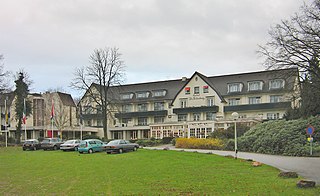
The Bilderberg meeting is an annual off-the-record conference established in 1954 to foster dialogue between Europe and North America. The group's agenda, originally to prevent another world war, is now defined as bolstering a consensus around free market Western capitalism and its interests around the globe. Participants include political leaders, experts, captains of industry, finance, academia, numbering between 120 and 150. Attendees are entitled to use information gained at meetings, but not attribute it to a named speaker. This is to encourage candid debate, while maintaining privacy—a provision that has fed conspiracy theories from both the left and right.
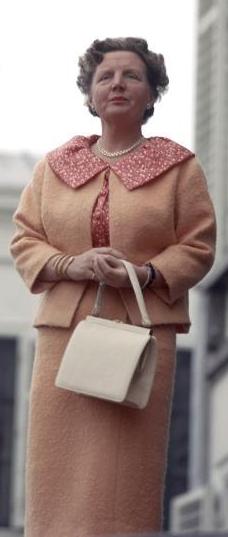
Juliana was Queen of the Netherlands from 1948 until her abdication in 1980.
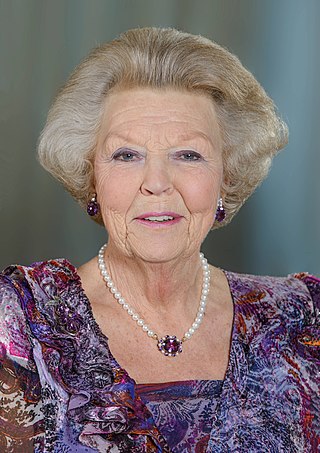
Beatrix is a member of the Dutch royal house who reigned as Queen of the Netherlands from 1980 until her abdication in 2013.

Willem-Alexander is King of the Netherlands, having acceded to the throne following his mother's abdication in 2013.

Prince Friso of Orange-Nassau was the younger brother of King Willem-Alexander of the Netherlands. Prince Friso was a member of the Dutch Royal Family, but because of his marriage without an Act of Consent in 2004, he lost his membership of the Dutch Royal House and was no longer in the line of succession to the throne.
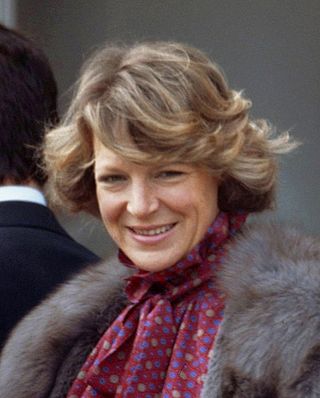
Princess Irene of the Netherlands is the second child of Queen Juliana of the Netherlands and Prince Bernhard.

Princess Christina of the Netherlands was the youngest of four daughters of Queen Juliana of the Netherlands and Prince Bernhard of Lippe-Biesterfeld.

Catharina-Amalia, Princess of Orange, Princess of the Netherlands, Princess of Orange-Nassau is the heir apparent to the throne of the Kingdom of the Netherlands, which consists of the constituent countries of Aruba, Curaçao, the Netherlands, and Sint Maarten.

Since 1983, the crown of the Netherlands passes according to absolute primogeniture. From 1814 until 1887, a monarch could only be succeeded by their closest female relative if there were no eligible male relatives. Male-preference cognatic primogeniture was adopted in 1887, though abolished when absolute primogeniture was introduced in 1983. Proximity of blood has been taken into consideration since 1922, when the constitution was changed to limit the line of succession to three degrees of kinship from the current monarch. In a situation where the monarch is succeeded by an eligible aunt or uncle, persons previously excluded could be reintroduced into the line of succession.

Despite Dutch neutrality, Nazi Germany invaded the Netherlands on 10 May 1940 as part of Fall Gelb. On 15 May 1940, one day after the bombing of Rotterdam, the Dutch forces surrendered. The Dutch government and the royal family relocated to London. Princess Juliana and her children sought refuge in Ottawa, Canada until after the war.

Prince Maurits Willem Pieter Hendrik of Orange-Nassau, van Vollenhoven is a member of the Dutch royal family as the eldest son of Princess Margriet of the Netherlands and Pieter van Vollenhoven.

Bernhard Lucas Emmanuel, Prince of Orange-Nassau, van Vollenhoven is a Dutch entrepreneur and a member of the Dutch royal family.

Prince Bernhard of Lippe-Biesterfeld was a German nobleman who was Prince consort of the Netherlands from 6 September 1948 to 30 April 1980 as the husband of Queen Juliana. They were the parents of four children, including Beatrix, who was Queen of the Netherlands from 1980 to 2013.
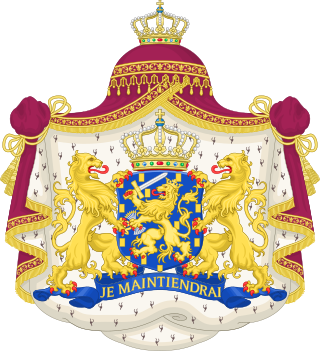
The monarchy of the Netherlands is a constitutional monarchy. As such, the role and position of the monarch are governed by the Constitution of the Netherlands. Consequently, a large portion of it is devoted to the monarch. Roughly a third of the document explains the succession, mechanisms of accession & abdication to the throne, and the roles & duties of the monarch. This includes the formalities of communication between the States-General and the monarch's role in creating laws.
In the Netherlands, the Boekenweek is an annual "week" of ten days dedicated to Dutch literature. It has been held in March annually since 1932. Each Boekenweek has a theme. The beginning of the Boekenweek is marked by the Boekenbal, a gathering that is attended by writers and publishers. Events are held across the country during the Boekenweek, such as book signing sessions, literary festivals and debates.
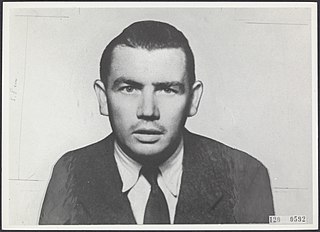
Christiaan Antonius Lindemans was a Dutch double agent during the Second World War, working under Soviet control. Otherwise known as Freddi Desmet, a Belgian army officer and SOE agent with security clearance at the Dutch Military Intelligence Division of the SOE (MID/SOE). He was known by the soubriquets "King Kong" or in some circles as "le Tueur" as he was reportedly ready to shoot at the slightest provocation. There is speculation that Lindemans was a member of Colonel Claude Dansey's Z organisation.

Indonesia and the Netherlands established diplomatic relations in 1949. Both countries share a special relationship, embedded in their shared history of colonial interactions for centuries. It began during the spice trade as the Netherlands established the Dutch East Indies Company (VOC) trading post in what is now Indonesia, before colonising it as the Dutch East Indies until the mid 20th century. Indonesia was the largest former Dutch colony. In the early 21st century, the Dutch government has committed to boosting its relationship with Indonesia, noting that economic, political, and interpersonal contacts should be further strengthened.
The World Port Days, also known as the World Harbour Days, is a large, festive maritime event held annually in Rotterdam. It is one of the most highly attended events in the Netherlands.

Tette "Ted" Meines was a lieutenant general in the Royal Netherlands Army and an activist for veterans' rights. During World War II, he was a member of the Dutch resistance and helped Jewish families, for which he was awarded the title Righteous Among the Nations by Israel. After the war had ended, Meines saw active service in the Politionele acties. During and after his military career, he became involved in veteran affairs and was instrumental in the setting up of several veterans organizations. He is considered the founder of the Dutch veteran affairs policy.

The Royal Military Band "Johan Willem Friso", also informally called the Band of the Royal Netherlands Army or the Johan Willem Friso Military Band is a Dutch military unit in the Koninklijke Landmacht which is the seniormost of all the military bands in the Netherlands Armed Forces, as well as the oldest of the four professional bands currently in existence in the army. It provides musical support for ceremonial events of national importance involving the army, the government, and the Dutch royal house. The repertoire of the band ranges from a variety of different genres, including military marches and contemporary/classical arrangements of symphonic music.


















